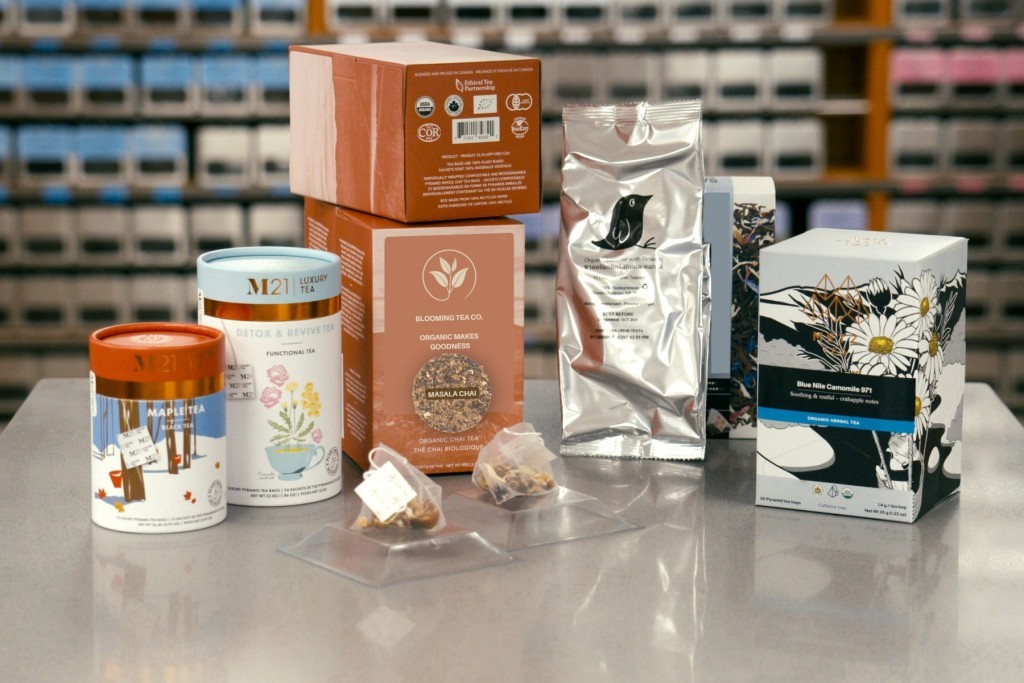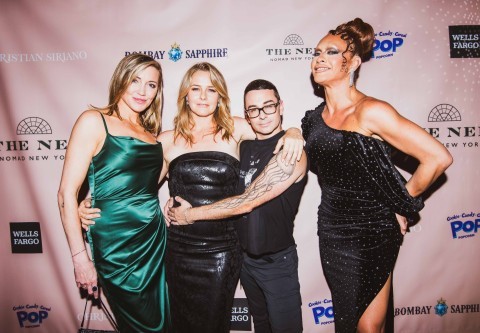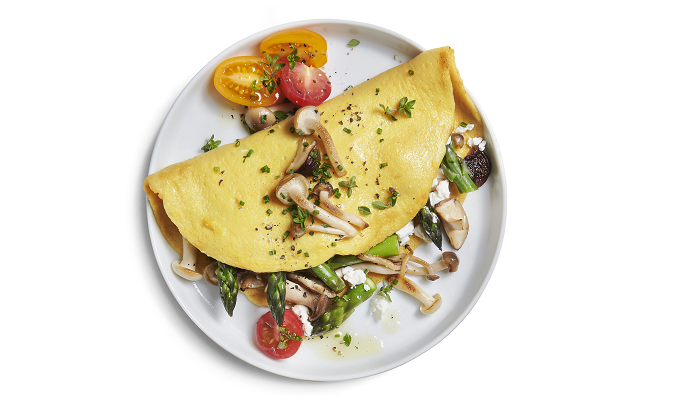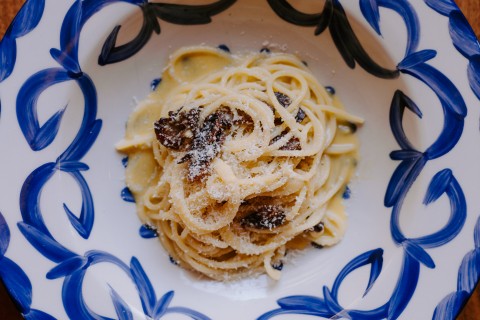By Debbie Hall
The Metropolitan Tea Company continues to offer exceptional guest experiences using environmentally conscious products and sustainable business practices. This series continues to explore the value of luxury tea and its impact on creating a posher, greener, and more delicious hospitality experience. In this second part, Food and Beverage Magazine speaks with Gerry Vandergrift, CEO and President, the company’s history and ongoing evolution with sustainable packaging materials.
What inspired Metropolitan Tea Company to switch to using 100% compostable packaging materials?
Gerry Vandergrift: As a market leader in the luxury tea industry, 100% compostable packaging would stimulate change in this sector, notwithstanding that positive change is ethically the correct thing to do.
As a company that deals with agricultural products (teas, herbs, and spices), environmental sensitivity factors into every business decision. We’ve always believed that “the healthier the planet, the better the tea,” As a global business, it is essential to implement that ethos into every step of the process, from crop to cup, including packaging.
How long has the company used compostable pyramid tea bags made from plant-based PLA material?
Gerry Vandergrift: Compostable tea bag material became available in 2007. Upon this availability, we decided to purchase tea-bagging machines. Our first machines were commissioned in the Spring of 2008.
Before that, we were primarily a loose tea seller, and the only alternative for pyramid tea bags was nylon material. We felt that the delight of drinking a cup of luxury tea should not be overshrouded by the knowledge that archeologists could uncover what the teabag left in its wake in 200 years.
SWAPPED ORDER OF THIS QUESTION
Can you explain how your 100% compostable tea bags work and how they differ from traditional teabags?
Gerry Vandergrift: Our Compostable Tea Bag Requirements Are:
- The tea bags need to be able to contain whole-leaf seasonal quality luxury tea and allow the tea to fully open and infuse in the cup (as opposed to lower quality small leaf, which some have equated to floor sweepings)
- The material could not contain petro-based plastics but needed to be made of plant material
- The material must be able to be cut and sealed using ultrasonic vibration and at speeds of 200 tea bags per minute
- The material needed to have the clarity of nylon to showcase the whole-leaf tea and create anticipation of a cup of delight for the consumer (without the 200-year nylon hangover). The string needed to be extra long to avoid falling into your cup.
Traditional Tea Bag Material:
- Made from abaca fiber with nano-petro plastics embedded into the material to allow heat sealing of the tea bag
- The abaca fibers will degrade, but the nano plastics will be there for millennia and eventually find their way into your food chain
Can you explain the compostable material used to make the tea bag envelopes introduced in January?
Gerry Vandergrift: The envelope material was three years in the making. We intensely collaborated with ProAmpac, our packaging supplier, trying all matters of alternatives. This research culminated in 2023, with ProAmpac receiving an award for technological and compostable innovation from The Flexible Packaging Association. The envelopes are a composite whose layers are:
- Home compostable ink
- Home compostable paper
- Compostable adhesive as testing is currently underway for home composability
- Pure aluminum dust particles, which naturally recur in soil
- Compostable plant-based PLA cellophane – testing is being conducted with a plant enzyme that, when added, turns the PLA into home compostable cellophane (we are expecting that this will occur in the next year)
The result is a 100% compostable envelope whose flavor and moisture barrier properties equal the best non-compostable tea envelope on the market. We use this envelope material for our METZ Luxury Tea collection and customer private label projects. Luxury tea deserves the best!
How do the compostable pouches made from natural plant starch break down in a composting system? The ink?
Gerry Vandergrift: Effective composting requires moisture, oxygen, heat, and microorganisms to break down the materials. The compostable pouches are primarily home-compostable using plant-based inks and paper. However, The PLA cellophane layer requires more aggressive composting, which is currently only achievable at commercial compostable facilities. We are on the cusp of achieving home-compostable PLA by adding plant-based enzymes while manufacturing the PLA material.
What is the certification process for the commercially compostable tea bag material, string, and tag materials?
Gerry Vandergrift: The premier certifying organization in North America is BPI, a science-driven organization that supports a shift to a circular economy. BPI-certified means food waste, yard trimmings, and compostable packaging are kept out of landfills by creating and maintaining composter confidence.
There is also an organization based in Vienna, Austria, called TUV, that will award certification to products that meet or exceed their criteria concerning composability.
Can you tell us about Metropolitan Tea’s dedication to environmental and social sustainability?
Gerry Vandergrift: Can you imagine a world without tea? Neither can we. That is why we follow a multi-step approach to environmental and social sustainability, which is the focus of all business decisions.
Since 1991, our corporate pillars have been:
- Fair trading with our supplier partners and clients – everyone must be a winner
- Fair treatment and safe working conditions throughout our supply chain
- Re-investment at all levels in our supply chain ensuring a bright future for all
- Supportive of farmer families
- Only work with suppliers and clients that share our ethos
- Change with technological innovation, which reduces our footprint
- Respectful of all – understanding the people and places where the tea comes from and where it is consumed
- Everywhere we conduct business, we do so in a manner that would make your mother proud
This is the second of a three-part tale of compostable twists and tea-infused triumphs in hospitality. For The Metropolitan Tea Company, the green revolution is about sipping a cup of delicious tea and savoring the essence of luxury while being kind to our planet. From crop to cup, their goal is to sustain the environmental thread that weaves throughout their plant-based mission all the way to the satisfaction of the end consumer taking their first sip. The brewing will continue with part three in our next issue.
Read Also: Hershey Foodservice Emphasizes Industry Collaboration








